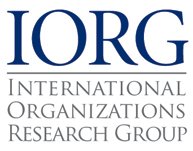
Pro-Life Concerns about USAID’s Updated Maternal and Child Health Framework
In March 2023, USAID launched its updated policy to prevent maternal and child deaths in developing countries: Preventing Child and Maternal Deaths: A Framework for Action in a Changing World.
Policy Papers
Why International Institutions Should Reject “Reproductive Justice”
For over a quarter of a century, terms such as “reproductive rights” and “sexual and reproductive health” have appeared in dozens—perhaps hundreds—of UN resolutions, despite remaining controversial due to their inextricable linkage to the issue of abortion.
Definitions
USAID Global Water Strategy Prioritizes Gender Ideology
The goal of the U.S. Government Global Water Strategy 2022-2027 is ostensibly to provide self-sustaining, clean, and reliable water access to people in developing countries—a laudable goal for US foreign assistance. However, the strategy raises concerns by its inclusion of language relating to contentious gender ideology.
Policy Papers
Five Problems with USAID Updated Youth Policy
The greatest concern in the Youth in Development Policy, in which it exceeds the other related strategies, is its exhibition of resources affirming “safe abortion” procedures and USAID-sponsored comprehensive sexuality education (CSE).
Policy Papers
Why the “Safe from the Start” Initiative Fuels the Global Abortion Movement
The “Safe from the Start” (SftS) initiative was launched by the Obama administration in 2013 as part of a broader effort to promote the empowerment and protection of women and girls worldwide, with a specific focus on preventing and responding to gender-based violence in emergencies.
Policy Papers
The Global Social and Emotional Security State: The Transformation of Education to Embed Sexual Rights and a Progressive Universal Ethic
The politicization of education systems in the United States and abroad has become greatly pronounced in the past decade, with debate over controversial curricula including critical race theory, comprehensive sexuality education, and affirmation of gender ideologies.
Definitions
Why Comprehensive Sexuality Education is Not the Answer
For over two decades, international agencies have promoted the concept of “comprehensive sexuality education” and have sought the normative support of United Nations intergovernmental bodies, but the notion has failed to gain support from UN member states as a whole because of the controversial explicit content of these programs, as well as their challenges to parental authority and traditional sexual norms. This Definitions will explain what comprehensive sexuality education is and why it is so controversial.
Definitions
Evidence of Systemic and Unlawful Abortion Promotion by UN Secretariat, Agencies, and other Entities (Updated 2022)
In 1994, at the International Conference on Population and Development, UN member states agreed that abortion was an issue to be addressed exclusively in national politics and legislation, and therefore not a human right or an issue on which international agencies should opine or interfere.
Briefing Papers
Evidence of Systemic and Unlawful Promotion of Sexual Orientation and Gender Identity by UN Secretariat, Agencies, and other Entities (Updated 2022)
Recent debates on the use of the terms “sexual orientation” and “gender identity” within the United Nations in reference to individuals who identify as lesbian, gay, bisexual, and transgender (LGBT) are often conducted with the assumption that these notions are clearly defined in science and law.
Briefing Papers
Evidence of Systemic and Unlawful Promotion of Comprehensive Sexuality Education by UN Secretariat, Agencies, and other Entities (Updated 2022)
At the International Conference on Population and Development (ICPD) in 1994, UN member states agreed to provide “age-appropriate sex education” with “appropriate direction and guidance from parents and legal guardians.”
Briefing Papers





